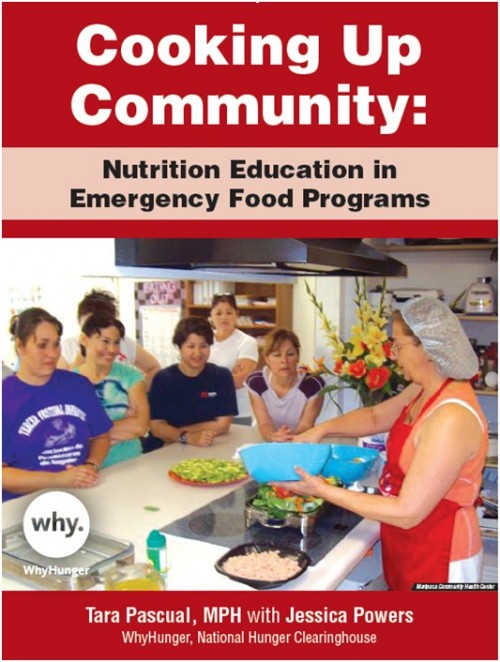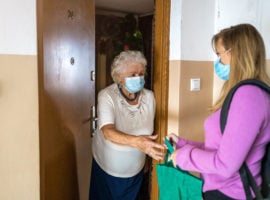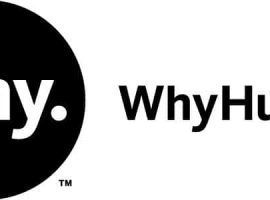
Last week WhyHunger unveiled our newest capacity building resource for emergency food providers, Cooking Up Community: Nutrition Education in Emergency Food Programs. This comprehensive, 88-page guide is a compilation of groundbreaking nutrition education programming from organizations around the country. The programs and activities highlighted in the guide provide examples and inspiration for emergency food providers to expand or strengthen their programming, or to forge new partnerships and collaborate with others in order to fulfill their commitment to improve the health and well-being of their community.
Our own Jessica Powers, Director of the National Hunger Clearinghouse, was interviewed by Eric Talkin, CEO of the Foodbank of Santa Barbara County, on his blog From Health to Hunger. Through this innovative blog—which is featured in the Cooking Up Community guide— Talkin advocates for food banks to move towards community food security by focusing on nutrition.
Here is a sneak peek of the interview:
Tell me a little bit about this guide which is now available for people to download from your website.
The National Hunger Clearinghouse works on capacity building for emergency food providers, and we focus mainly on food pantries and smaller agencies. Through that program, we had a lot of conversations with people, and they kept saying that there was a lot of innovation happening in food sourcing and nutrition education, and it was really hard to find out what was going on and to find a place which could be a hub for that information.
We did research and created program profiles on a host of organizations that are working on those 2 different issues. And so we organized them sort of by strengths. So in the nutrition education guide, we’re looking at programs that maybe are better at working with diverse communities. Some are better at evaluation. And the idea is that people can then tailor it to the program that works for them in their area.
What do you think food banks could do or be involved in that they are not currently as a whole involved in?
I think that we all acknowledge that the root cause of hunger is poverty, and if we’re not talking about poverty and solutions to that, then we’re spinning our wheels. So I would challenge food banks to do more of that, to talk more about wage disparity, to talk more about living wages and healthcare and things like that, that are forcing people into the position where they need emergency food assistance.
To read the full interview, click here.
Download the Cooking Up Community executive summary or the full report at: www.whyhunger.org/cookingupcommunity





